
OR
Oli government is moving from populism toward authoritarianism
Published On: July 8, 2018 07:04 AM NPT By: Mahabir Paudyal and Kosh Raj Koirala
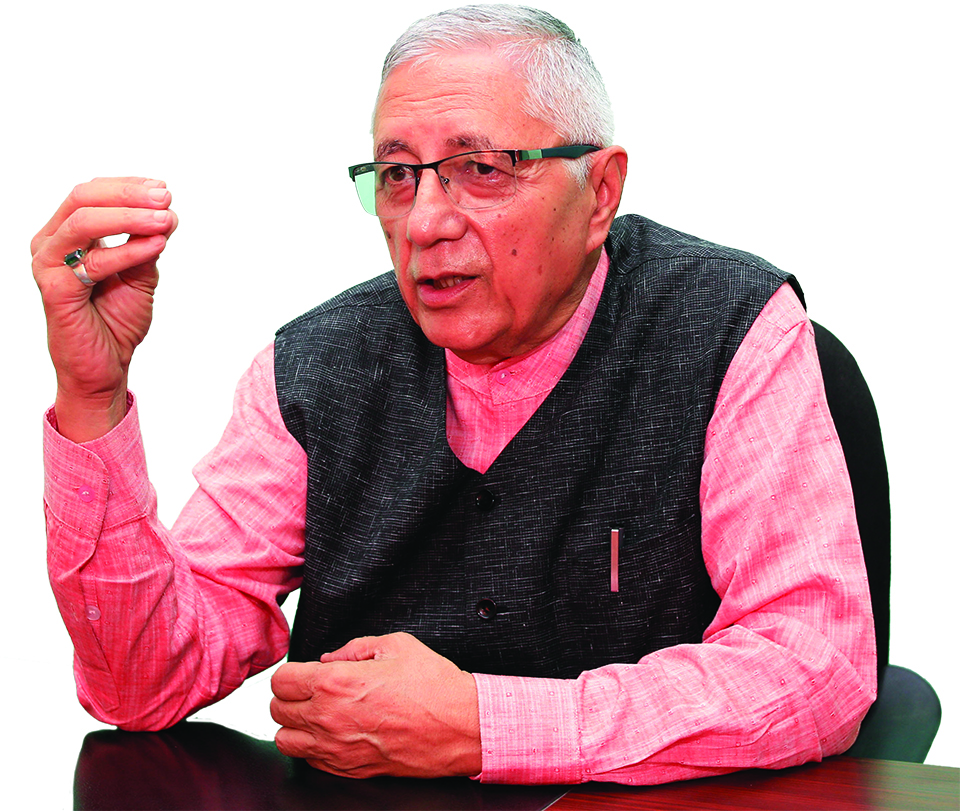
Central Working Committee member and a senior leader of Nepali Congress, Dr Shekhar Koirala is a vocal critic of internal conflict and strong advocate of change within the party. But Nepali Congress has not yet been able to stand assertively on issues of public concern and has rather been reactive to government actions. What led Congress to this situation? How will it go ahead in the days to come? How does the party evaluate performance of K P Oli’s government? Mahabir Paudyal and Kosh Raj Koirala asked. Nepali Congress has started to speak up against government actions only recently.
Why did Congress stand as a mere spectator all this while?
After we were defeated in the elections last year, conflict emerged among senior leaders. Each started to blame the other for the defeat. It should not have been that way. In elections, one party loses and other wins. We should have taken it rather normally but we seemed to be guided by the trauma of defeat. The party president should have taken the moral responsibility for the defeat. This would have solved a lot of internal problems. Besides, we were not completely wiped out. We still have 63 members in the parliament, which is not a small number. We still have around 23 percent seats in the parliament. Yet we conducted ourselves as if we were completely defeated force. And we began to be reactive to government moves. We should have been proactive. It seemed like we were waiting for the government to do wrong so that we would be able to respond. This is not how opposition party should conduct.
Being proactive is in history of Congress. From the days of B P Koirala to the times of Girija Prasad Koirala and to some extent Sushil Koirala, we were a proactive force. GP Koirala had his own stand on politics. I still remember him telling Pushpa Kamal Dahal not to resign and instead consult him (Koirala) in 2009. Assertiveness and proactiveness was our strength. When Sher Bahadur Deuba succeeded Sushil Koirala, we became completely reactive. Being reactive does not help in politics. We have not restructured our party along federal structure either.
If so, why don’t senior leaders raise these concerns?
I have been raising these concerns for quite a while. The problem is our senior leaders were not really confident that federal system would be implemented. That was the mindset then and that still seems to be the way of thinking among some leaders. This is the reason we have not been able to move forward by internalizing the change. We should have done that long ago. Even though the country has become fully federal, old generation leaders of our party is still guided by the mindset of unitary system.
How do you respond to initial moves of the government such as decisions of ending transportation syndicate, taking action against nonperforming contractors and tracking gold smugglers?
The government announced to end transport syndicate. We welcomed that decision. But neither the government nor us seem to have distinguished between cartel and syndicate. They are two different things. The government focus should have been on ending carteling system. Interestingly, the government has not been able to do bare minimum to implement its own decisions. Look at what the home minister is doing. He is checking pollution level of vehicles on the streets, as if this is his chief responsibility. The home minister says he will take action against nonperforming contractors but he does not do so. He says he will have the big fishes of gold smuggling scam arrested but he has not been able to do so. There is huge gap between the government’s commitment and performance. I challenge the government to arrest one big fish of gold smuggling racket. We will applaud him. The government is raising purely populist issue and we have only been reactive.
Congress has long been claiming that communist alliance was main cause of its defeat in the election. There are other factors as well.
We lost mainly because of our organizational weakness. Like I said, we have not yet restructured our party along the federal line. While in the government, we made mistake on impeachment attempt of sitting chief justice. We made mistake on IGP promotion. We committed one after another mistake at a time while the people were watching us like never before. Media has become so powerful. What we do does not remain out of public gaze. People were judging us and we were still not correcting ourselves.
You have been traveling round the country lately. What is the feeling among Congress cadres?
They are distressed and diffident. The internal division has really disappointed them. Some of them have begun to say enough is enough. They say that Congress should stand united to fight the communists. They are also clear that current leadership won’t be able to fight excesses of communist government. Many district presidents also raised this concern in the recent meeting in Hetauda. But the problem is we have not been able to revive the confidence of our district presidents either. They seem betrayed by the leadership. We should not ignore the roles the district presidents have played in expanding our influence in the grassroots. They serve as a bridge between the center and the grassroots.
Congress debated over how the party should have reacted to Indian blockade of 2015/16 for long. What is your conclusion?
We did not even call the blockade by its name. We were in the government when the blockade started. We should have tackled with it diplomatically in our own way. While we miserably failed on this front, K P Oli capitalized on the very agenda for electoral gains.
How do you evaluate Oli’s performance in handling relation with India and China?
I don’t know if Oli has made some compromise while dealing with India and China. May be he is hiding something from us. We don’t know. But from what has come out in the media, he seems to be working positively on foreign policy front. When blockade was lifted in February, 2016, Oli visited India as a prime minister. This visit did not allay bitterness in our relation. Instead, the bitterness increased. When his successors, Pushpa Kamal Dahal and Sher Bahadur Deuba, went on India visit, India-Nepal relations started to be normalized. With Oli’s visit to India after becoming the PM for the second time, the relation seems to have become further normal. In the meantime, India also seems to have realized its mistake in Nepal. I do not think India will make controversial moves on Nepal at least until 2019 elections. I feel until then India will be in wait and watch mood.
In your view, how is Oli handling relations with China?
I have not found a fundamental difference between his China visit of March, 2016 and his visit last month. China in the recent times has conveyed to Nepal that it should remain on good terms with India. This message was conveyed during foreign minister Pradeep Gyawali’s visit to China in April and Chinese President Xi Jinping is reported to have conveyed the same message to Oli as well. This shows that India and China are getting closer. China seems to believe that it won’t be wise to undermine India factor in Nepal. Thus I doubt Oli government will be able to implement the agreements with China as aggressively as he has been presenting them as his success. He has been harping on railway agenda. But we need to consider how much we can benefit from Chinese rail. Having Chinese railway in Nepal will be good only if that railway will be connected with Indian railway. Then rail project will be commercially viable and we will be able to benefit from trade with India and China as well. That said, agreements Oli signed with China are good though we are yet to see how or whether they will be implemented.
Congress is often seen as ‘pro-India’ party by China. What do you think led to this impression?
Most Chinese recognize only BP Koirala and Girija Prasad Koirala. This is an irony. Because we are Koiralas they take us in good faith. Chinese think we Koiralas are nationalist, which is what we are. We were projected as ‘pro-India’ because we started anti-Rana agitation from India. BP Koirala actively fought for independence of India and he was even jailed in India. Most of Congress leaders have had close relations with Indian leaders. Therefore the old elites of Nepal tagged us as ‘anti-China’ and ‘pro-India’ party. The truth is we are neither anti-China nor pro-India. We are nationalist. We are pro-Nepal.
Opposition party should also appreciate good moves, if any, of the government. What are some of the good things Oli’s government has done in the last five months?
(Long pause). It had started with good promises. On promises this government has been really positive but not on actions. But on foreign policy, I must admit that Oli is doing well.
Despite criticisms from various sectors, the government continued with constituency development fund in the budget. Why did not Congress oppose it?
We have missed a lot of good opportunities to expose the government. We should have stood vigorously against the decision to grant pardon to Bal Krishna Dhungel. We failed to do that. Dhungel was released in collusion between the government and the Supreme Court and we failed to raise the issue. The court should have said the government cannot grant amnesty to him until the government responded to show cause order. This was the first step toward giving free rein to impunity. On constituency development fund, we should have protested in the parliament. We should have at least said Congress leaders won’t accept CDF. At least we should not have allowed this to happen in provincial budgets. Internal division has made us so weak even to speak on vital matters. But we are not going to sit idle. We will raise issues of public concerns vigorously. We have now started. We have spoken against so-called ban on protests on public space and we have spoken as vigorously against government apathy toward the demands raised by Dr Govinda KC and Ganga Maya Adhikari.
The government is also talking about constitution amendment. What will be your stand?
The amendment issue is centered mainly on language, citizenship and alternation of provincial boundaries. They have also started to speak about directly-elected executive head. We have clear position on all this.
I have found that even the children of those who obtained citizenships in 2007 in Madhes have not been granted citizenships, though the constitution does not really bar them from obtaining citizenship. This is injustice. Any son or daughter of Nepali citizen must be provided with citizenship certificate. We must be really sensitive about this. We have nine languages with written script in Nepal. Any language that has its history and script must be given official recognition. One way of doing that could be by mentioning those scripts in currency notes, as in India. While doing so, we must distinguish mother tongues from link language. We must not work on language in such way that undermines our own mother tongues or relegates them to secondary status.
On provincial boundary, I don’t think they will be able to do anything about it. Province 5 has been made a contested zone. But if we alter boundary of this province, it will meet with total backlash. If such a proposal is raised again, Congress will stand against it.
Why do you say that? Once Congress seemed pretty flexible on provincial boundary issue.
I say this for a good reason. I was also flexible on this issue at one time. My feeling then was ‘why make it a big issue if certain compromise can settle it?’ This was my feeling before the constitution promulgation. My thinking was ‘if Morang and Sunsari can be brought to Province 2 and this solves the problem, why not do it?’ Then I visited the Tarai plains myself. I found that even Madhesis are against delineating boundaries separating hills from plains and vice-versa. When I returned to the capital, I informed the leadership of this reality. Since the constitution promulgation, many things have become settled. I don’t believe boundaries should be altered. As for amending the constitution in favor of directly-elected presidential system, Congress will not let this happen.
You claim the government is going on authoritarian path. The government claims it has not deviated from democratic framework. What is the truth?
Until recently, more than authoritarianism, the government was going on populist path. We have gone on federal set up. In none of the provinces, Congress has strong presence. And Prime Minister Oli was going to provinces and addressing provincial parliament. It does not happen elsewhere. It does not happen in India. That was a populist act.
Now it has gone far ahead from populism toward authoritarianism. Evidence is right in front of your eyes. Look at the apathy toward Dr KC and Ganga Maya Adhikari. Look at the prohibition on protest in Maitighar Mandala. On Wednesday, the government revoked all political appointments made by Sher Bahadur Deuba-led government. This violates the principle of rule of law. The government has cited election code of conduct behind the decision but the truth is NC-led government had received due consent from the Election Commission to make those appointments. This shows that government is now headed from populism to totalitarianism. Make no mistake about it.
Finally, what should Congress do to make it assertive enough in national politics and resolve internal conflict? Some say you should claim the leadership.
There is a way out. First, our old generation leaders should make way for the second generation leaders and youth leaders. They should guide us as patrons. Yes, they have fought for the country and have had years of experience. They are valuable assets of the party. But they have not been able to take the party forward in the changed context of geopolitics, world politics and internal dynamics.
In the immediate run, we must call the Mahasamiti meeting so that it will amend the party constitution. And then we should go for 14th general convention. General convention is the ultimate forum to resolve internal conflicts.
Now is the time for the older generation to retire and hand over the rein to second generation leaders, who will then make way for youth leaders. Congress cannot go ahead in this situation of stagnation. As for me taking the leadership, if I gain support from cadres I will not hesitate to stake the claim.
You May Like This
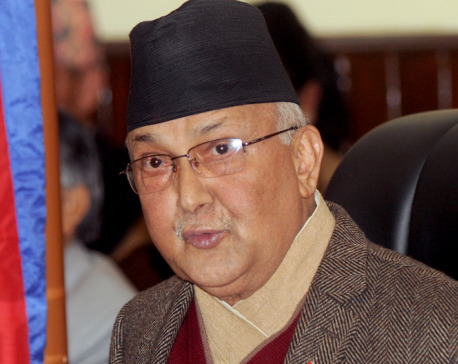
National consensus is the need of hour: Chairman Oli
POKHARA, May 28: CPN (UML) Chairman KP Sharma Oli has said that a national consensus was necessary for successful implementation... Read More...
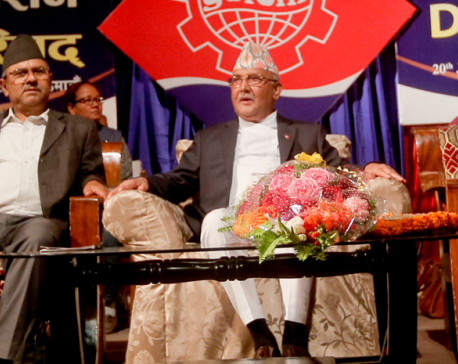
No-trust proposal is envy proposal, says PM Oli
KATHMANDU, July 20: Prime Minister KP Sharma Oli has said the other parties brought the no-confidence motion against the government... Read More...

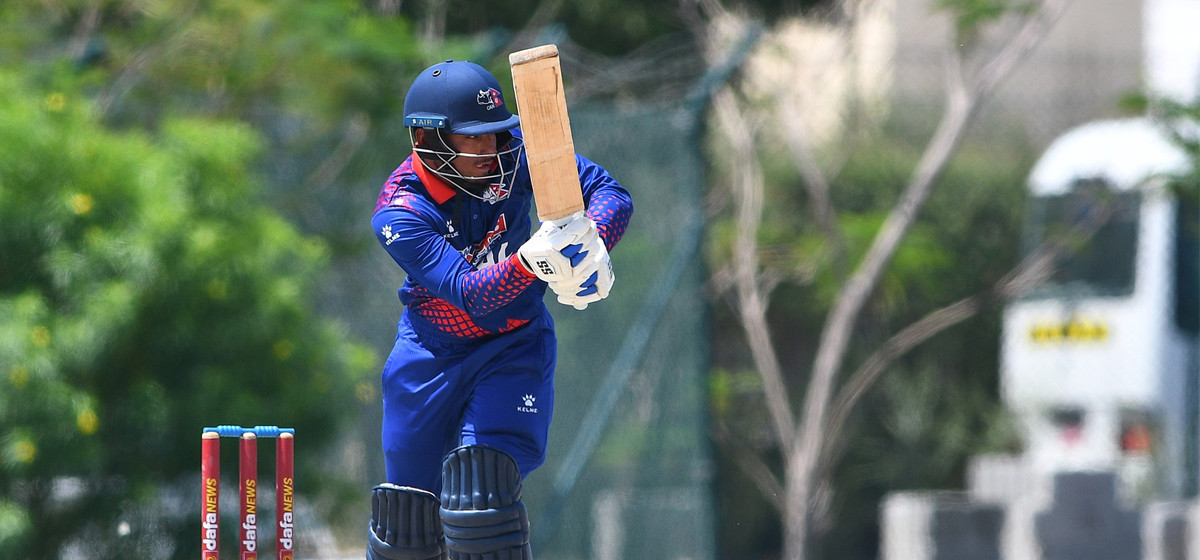
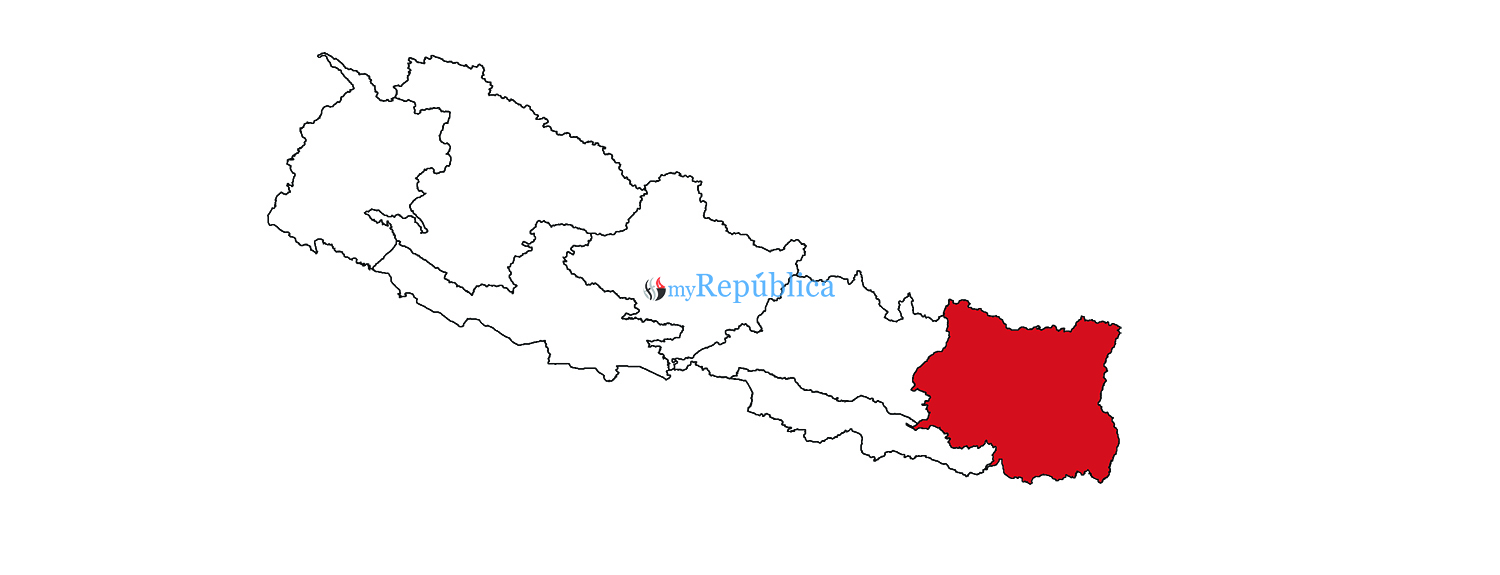


Just In
- Teachers’ union challenges Education Minister Shrestha's policy on political affiliation
- Nepal sets target of 120 runs for UAE in ACC Premier Cup
- Discussion on resolution proposed by CPN-UML and Maoist Center begins in Koshi Provincial Assembly
- RBB invites applications for CEO, applications to be submitted within 21 days
- Telephone service restored in Bhotkhola after a week
- Chemical fertilizers imported from China being transported to Kathmandu
- Man dies in motorcycle accident in Dhanusha
- Nepal face early setback as four wickets fall in powerplay against UAE









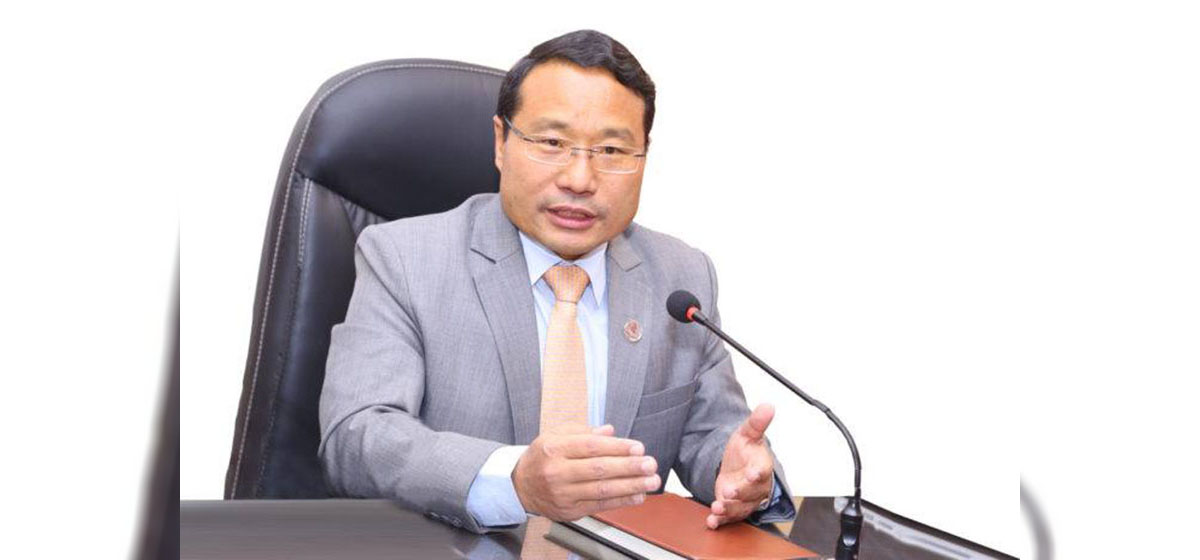

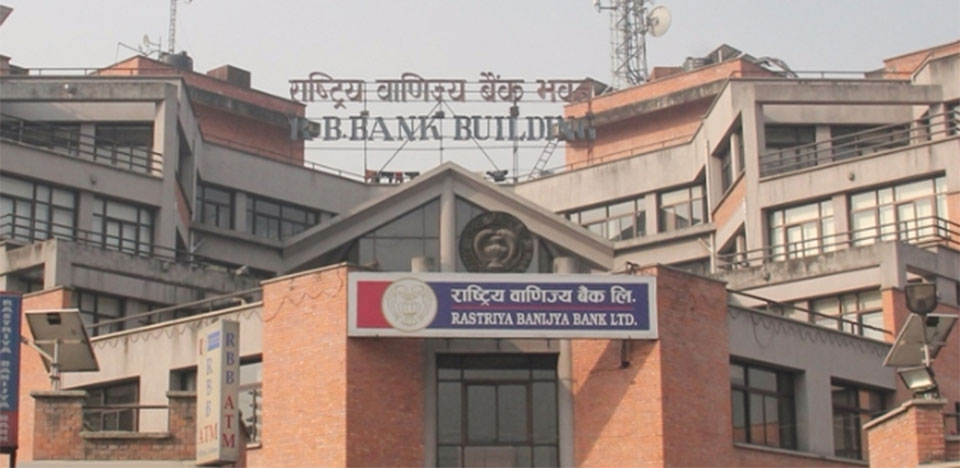

Leave A Comment